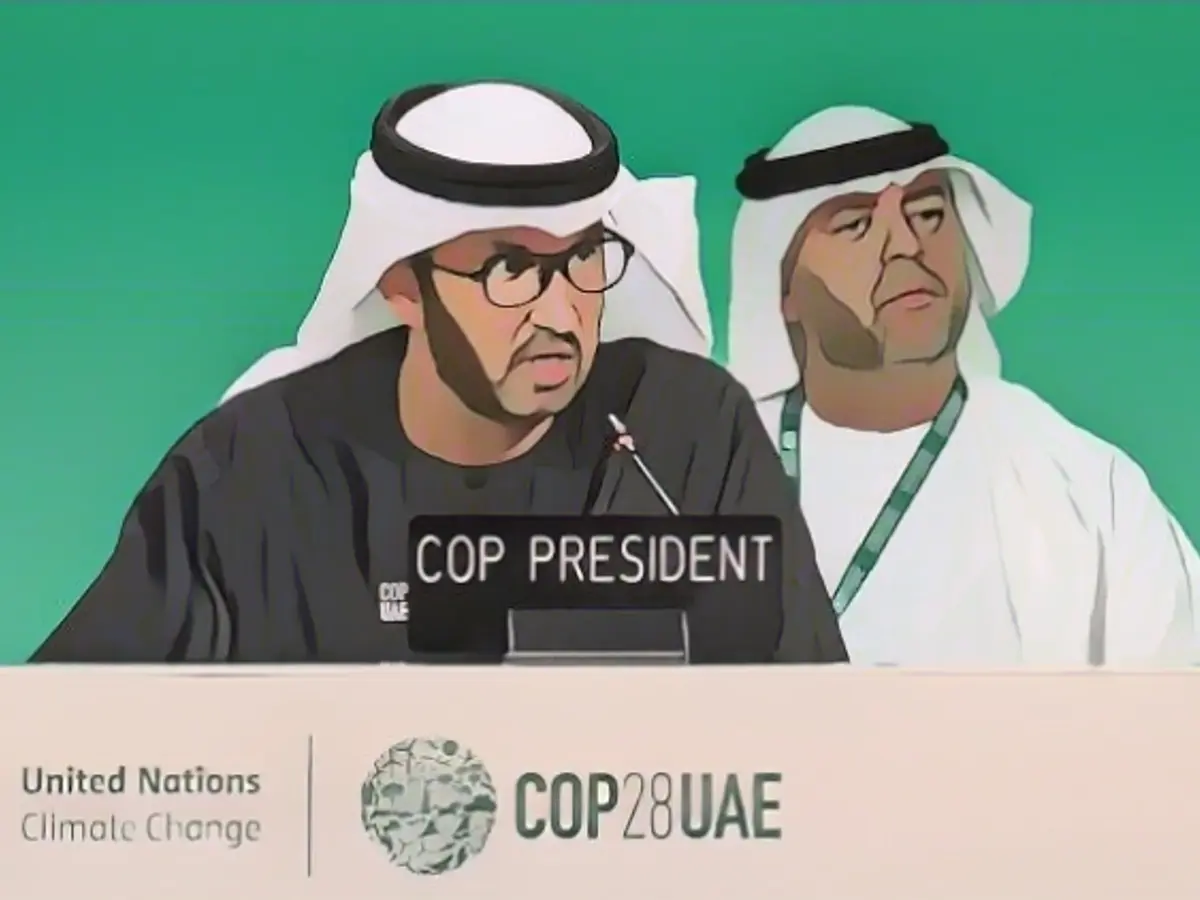UN Climate Conference Stalls in Extra Time Amidst Controversy
The UN Climate Change Conference in Dubai is facing an extension, as negotiators have yet to agree on a final text. The draft presented by Conference President Sultan al-Jaber, who also heads an oil company, has sparked controversy due to its omission of the phase-out of coal, oil, and gas demanded by over 100 countries.
As the World Climate Conference in Dubai drags on past its planned conclusion, the search for a final text continues. Al-Jaber, who serves as both the conference president and the CEO of a state oil company, introduced a draft on Monday that was deemed disappointing and inadequate by the EU, Germany, and numerous other nations. Environmental organizations joined in the criticism, as the draft lacked the coal, oil, and gas phase-out that had been previously emphasized.
Undeterred, Foreign Minister Annalena Baerbock of the European delegation expressed confidence in securing a deal. "We have time, and we are prepared to stay a little longer," she stated. While some nations, including oil-rich Saudi Arabia and others, expressed reservations about the phase-out of fossil fuels, the European delegation remained optimistic.
John Kerry, the US climate envoy, spoke passionately about the necessity of action. Referring to the COP as the "last" chance to limit global warming to 1.5 degrees, he emphasized the need for a significant reduction in fossil fuel use this decade. Kerry argued that the world was engaged in a "war for survival" and criticized those who refused to take decisive action.
Climate activists, including Luisa Neubauer from Fridays for Future, sounded a note of caution. Dubbing the conference as "not a 'walk on sunshine'" conferences, Neubauer warned that the accord could still fail if the fossil fuel industry lobbyists left the meeting feeling satisfied.
Further Insights
- Global Shift towards Renewable Energy: Transitioning away from fossil fuels is crucial to combating climate change. Countries like Germany, the UK, and Japan have set ambitious targets to decrease carbon emissions, aiming for carbon neutrality by 2045 or 2050. However, realizing these goals is proving to be a significant challenge due to the high reliance on fossil fuels and the need for substantial investments in renewable energy sources.
- Role of Conference President Sultan al-Jaber: Al-Jaber's dual role as the conference president and CEO of the Abu Dhabi National Oil Company (ADNOC) has sparked controversy. While he advocates for climate action, his company's continued focus on oil production raises questions about his commitment to reducing fossil fuel use.
- Global Support for Fossil Fuel Phase-Out: While some nations express reservations about fossil fuel phase-out, a growing number of countries have announced their support for a Fossil Fuel Non-Proliferation Treaty. This initiative aims to halt the expansion of oil, gas, and coal, shifting focus towards clean, renewable energy sources.
The UN Climate Change Conference in Dubai continues its extended stay, as negotiators strive to reach a consensus. Amidst the controversy, the call for decisive action on renewable energy and climate change resonates louder than ever.








